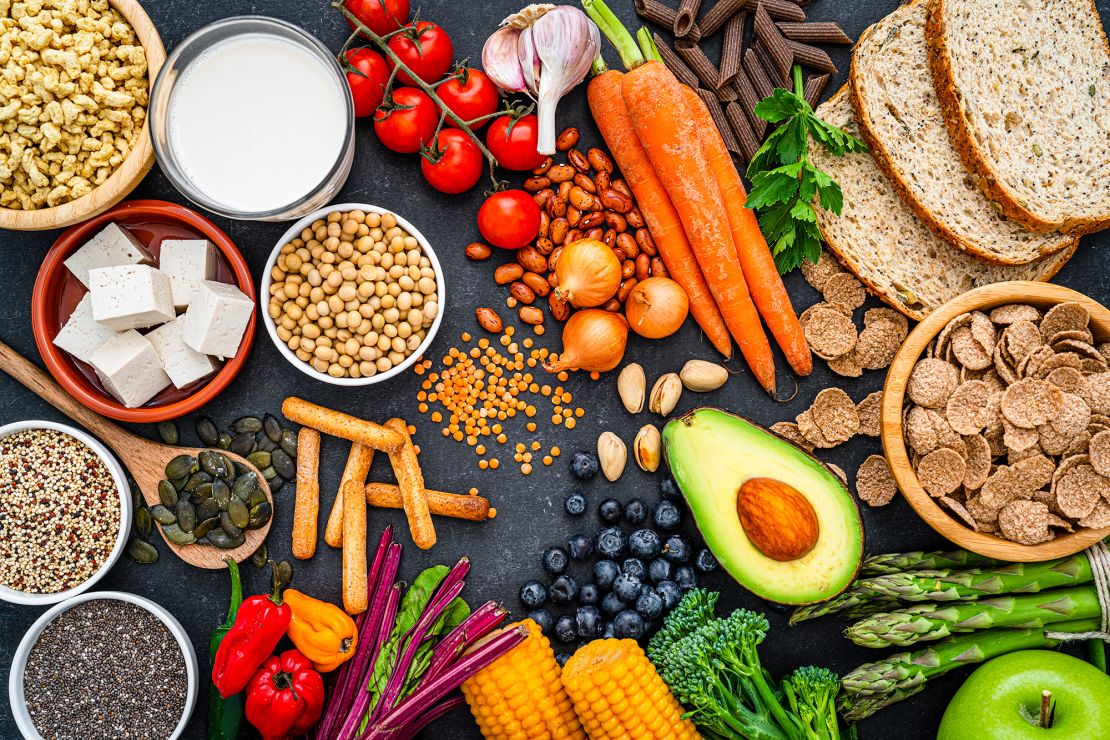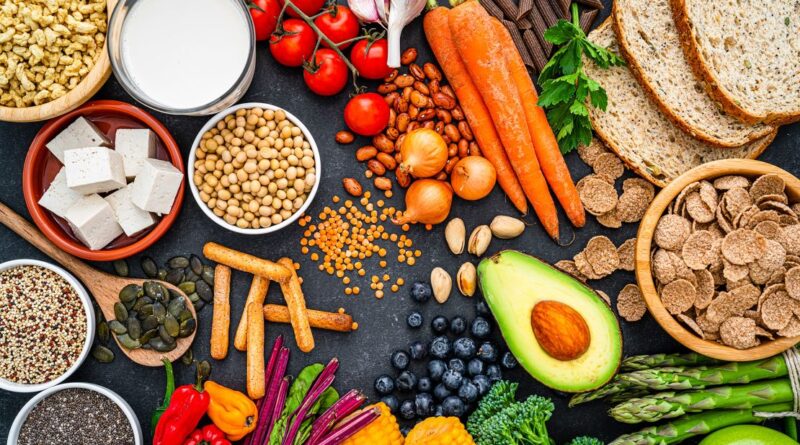Billions don’t eat enough of 7 essential foods, study finds | CNN
Subscribe to CNN’s Eat, But Better: Mediterranean Style. Our eight-part guide shows you a delicious, expert-backed diet that will boost your health.
CNN
–
Nutrients such as iron and calcium are important for blood and bone health, respectively. But more than half of the world’s population does not eat enough of these foods and five other nutrients that are also important for human health, according to a new study.
More than 5 billion people do not consume enough iodine, vitamin E or calcium, found a study published on August 29 in the journal Lancet Global Health. And more than 4 billion people do not have enough iron, riboflavin, folate and vitamin C.
“Our study is a big step forward,” said study co-author Dr. Christopher Free, an assistant researcher at the Center for Marine Science and the Bren School of Environmental Science and Management at the University of California, Santa Barbara, in a news release. . Free is also particularly effective in human nutrition.

“Not only because it is the first to estimate the lack of adequate nutrient intake for 34 gender groups in almost every country,” Free said. added, “but also because it makes these methods and results more accessible to researchers and clinicians.”
Previous studies have assessed global micronutrient deficiencies or inadequate supply of foods containing them, but there have not been any global estimates of what foods are considered unhealthy. enough based on nutritional needs, according to a recent study.
For these reasons, the research team estimated the prevalence of inadequate food intake of 15 micronutrients among 185 countries, or 99.3% of the population. They did so by modeling – using a “globally harmonized set of age- and sex-specific nutrient requirements” on data from the 2018 Global Dietary Database, which provides intake estimates based on data from individual research, household research and national food supply.
The authors also found differences between women and men. Women were more likely than men to not consume enough iodine, vitamin B12, iron and selenium. However, men did not get enough magnesium, zinc, thiamine, niacin and vitamins A, B6 and C.
There were also regional trends. In India, inadequate intakes of riboflavin, folate and vitamins B6 and B12 were highest, while calcium intake was highest in south and east Asia, sub-Saharan Africa and the Pacific.
“These results are alarming,” said study co-author Ty Beal, senior technologist at the Switzerland-based Global Alliance for Improved Nutrition, in a news release. “More people – than previously thought, in all regions and countries of all incomes – do not eat enough of the essential micronutrients. These gaps endanger health and reduce people’s potential in the world by wide.”
Although the findings are unique, they are consistent with what other small national studies have found over the years, said Dr. Lauren Sastre, assistant professor of nutritional science and director of the Farm to Clinic Program at East Carolina University in North Carolina, via email. .
“This is an important study,” added Sastre, who was not involved in the research.
The study has several important limitations. For one, since the research did not include the use of supplements and fortified foods, some of the limitations found in the study may not be as bad in real life if other people consume supplements and fortified foods. which may increase the intake of certain foods. nutrients, the authors said. However, supplementation and fortification with other studied nutrients is not common worldwide, the authors said.
But 89% of people worldwide use iodized salt, according to UNICEF. “Therefore, iodine may be the only nutrient that intake of insufficient food intake is high,” the authors said, referring to their findings.
“My only issue is that they left out the potassium, saying there are no values,” said Sastre. “We certainly have a (recommended daily allowance) of potassium in the US, and most people don’t eat nearly enough. And it needs to be balanced with sodium. We have people who eat too much sodium, and don’t have enough potassium needed for blood pressure (and) heart health.”
In addition, comprehensive information on individual food intake worldwide is lacking, particularly in nationally representative databases or with more than two days of consumption, the researchers said. This limitation limits the ability of researchers to verify their modeled predictions.
Although the group measured inadequate food intake, it did not have information on whether those targeted for deficiency should be diagnosed by a doctor or dietician based on blood tests and/or symptoms.
Dietitians and doctors can help you determine if you are getting enough of certain vitamins or minerals or if you have a deficiency that can be confirmed by a blood test.
“Micronutrients play important roles in cell function, immunity (and) metabolism,” said Sastre. However, we do not eat fruits, vegetables, nuts, seeds, grains – where they are found. We should follow the American Heart Association’s recommendation to ‘eat the rainbow.’”
Here’s a list of why seven of the world’s most undernourished nutrients are important and some of the foods they’re rich in:
1. Calcium
● Essential for strong bones and general health
● Found in dairy products and other soy-, almond- or rice-based products; dark leafy greens; tofu; sardines; salmon; tahini; and concentrated orange or grapefruit juice
2. Flat
● Important for red blood cell formation and cell growth and function, especially during pregnancy
● Found in dark green vegetables, beans, peas, lentils and whole grains such as bread, pasta, rice and cereals.
3. Iodine
● Important for thyroid function and bone and brain development
● Found in fish, seaweed, shrimp, dairy products, eggs and iodized salt
4. Steel
● It is important for transporting oxygen throughout the body as well as for growth and development
● Found in oysters, duck, beef, sardines, crab, lamb, whole grains, spinach, artichokes, beans, lentils, dark leafy greens and potatoes.
5. Magnesium
● It is important for muscle and nerve function, blood sugar, blood pressure and making protein, bones and DNA
● Found in legumes, nuts, seeds, whole grains, green leafy vegetables and fortified cereals.
6. Niacin
● Important for the nervous system and digestion
● Found in beef, chicken, marinara, turkey, brown rice, pumpkin seeds, salmon and whole grains
7. Riboflavin
● Essential for food metabolism for energy, immune system and healthy skin and hair
● Found in eggs, dairy products, meat, whole grains and green vegetables
#Billions #dont #eat #essential #foods #study #finds #CNN
